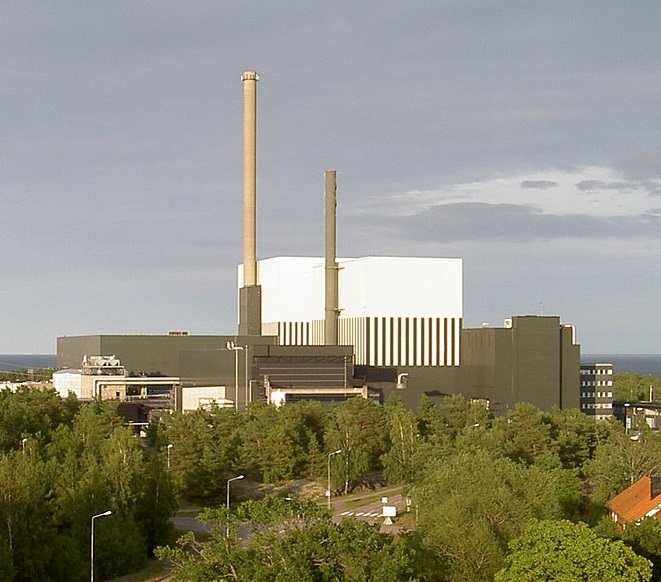GE Hitachi buys nuclear decommissioning company; China’s CGN eyes first UK HPR1000 by 2030
Our pick of the latest nuclear power news you need to know.

Related Articles
GE Hitachi to acquire decommissioning tooling company
GE Hitachi Nuclear Energy (GEH) is to acquire REI Nuclear, a decommissioning technology and tooling design company based in South Carolina, GEH announced December 10.
REI Nuclear specializes in the design, tooling and project management of decommissioning and dismantlement (D&D) projects.
GEH is looking to capitalize on the growing nuclear decommissioning market. In the U.S., growing demand for decommissioning services has spawned new business models and joint ventures.
Announced nuclear plant closures (2018-2025)
(Click image to enlarge)
Source: US Energy Information Administration (EIA), September 2018.
GEH has already used REI Nuclear technology to dismantle two reactors at the Oskarshamn Nuclear Power Plant in Sweden. The project includes the cutting and packaging of reactor internals for final disposal and will continue through 2019.
"With REI Nuclear’s technical and project planning expertise, we will be able to increase value for our customers by further strengthening the planning and field execution of decommissioning projects,” Lance Hall, Executive Vice President of GEH, said.
The acquisition is expected to close by the end of 2018.
Pennsylvania Caucus sets out potential nuclear price support
A bipartisan Nuclear Energy Caucus (NEC) in Pennsylvania has set out a range of potential support measures to prevent the early closure of nuclear plants in the state.
As low wholesale prices dent nuclear margins, the states of New York, Illinois, New Jersey and Connecticut have all introduced support mechanisms for nuclear power plants.
No action by Pennsylvania state legislatures will lead to the early retirement of reactors, the Caucus said in a report published November 29.
Pennsylvania hosts five nuclear plants for a total capacity of 9.7 GW. Exelon has already announced it will close its 800 MW Three Mile Island 1 plant in 2019 while FirstEnergy is to close its 1.8 GW Beaver Valley plant in 2021.
To prevent reactor closures, Pennsylvania state legislatures should modify utility requirements for the procurement of renewable energy to include nuclear power plants, the Caucus said. This could be in the form of an explicit modification to Pennsylvania's Alternative Energy Portfolio Standard (AEPS), the adoption of future federal capacity mechanisms, or a new Pennsylvania carbon pricing program, it said.
"Pennsylvania’s baseload power plants continue to face the risk of premature retirement, and we do not see expeditious and sufficient action being taken by PJM or the Federal Energy Regulatory Commission (“FERC”) to correct the market flaws at the heart of this problem," the Caucus said.
China General Nuclear eyes 2030 start-up of first UK HPR1000 plant
China General Nuclear could bring online its first UK HPR1000 plant by around 2030 to fill a gap left by the shelving of Toshiba's NuGen project, Robert Davies, Chief Operating Officer of CGN UK, said at an industry event December 6.
Last month, Toshiba announced it would liquidate NuGen, the 100% owned UK subsidiary that was planning to build the 3.8 MW Moorside nuclear project in Cumbria by the mid-2020s. Toshiba was not able to find a buyer for NuGen following the bankruptcy of its Westinghouse subsidiary which prompted billions in write-downs.
CGN plans to build a new plant at Bradwell using its Hualong HPR1000 design, currently under review by the UK licensing authorities.
The company already holds a third stake in EDF's 3.2 GW Hinkley Point C EPR project, expected online from 2025, and is a partner in EDF's planned Sizewell EPR project.
Following Toshiba's decision to scrap the Moorside project, CGN will "bring forward significantly" the planned commercial operations date of its first UK HPR1000 at Bradwell, Davies said, according to World Nuclear News.
The company would focus on a target commercial operations date of "circa 2030," Davies said.
Japan’s Hitachi is also developing a 2.9 GW plant using its advanced boiling water reactor (ABWR) design at Wylfa Newydd in Wales. The plant could be online by the mid-2020s and followed by another 2.9 GW plant at the site, according to the company.
Nuclear Energy Insider

